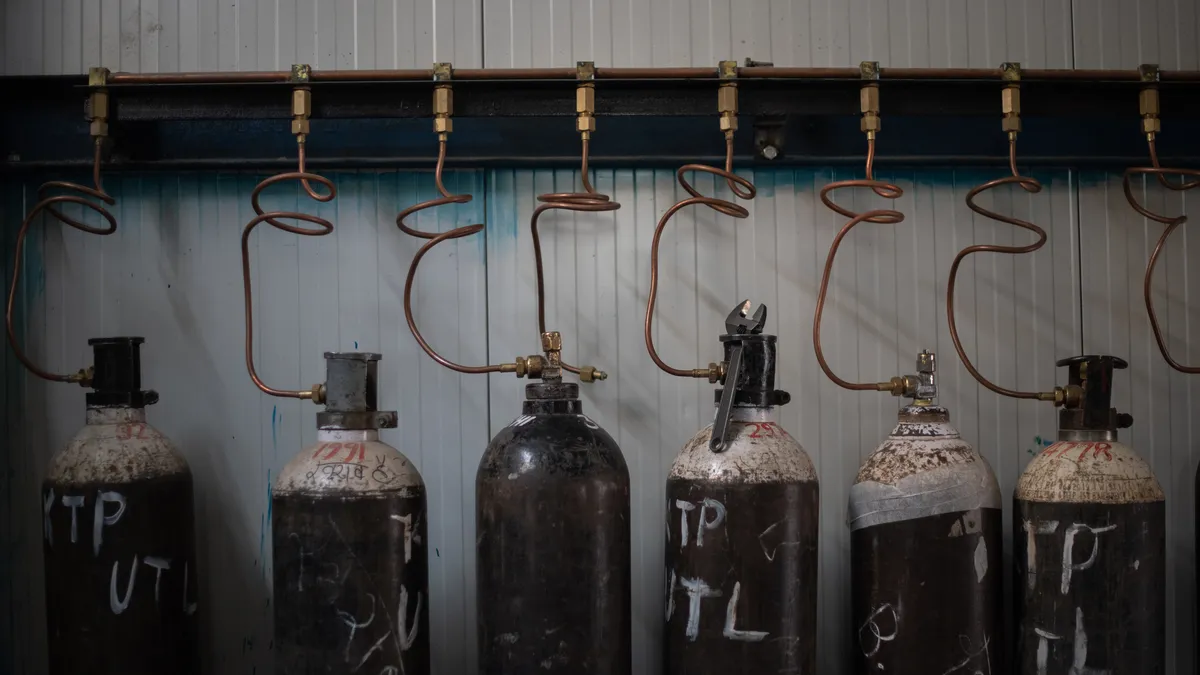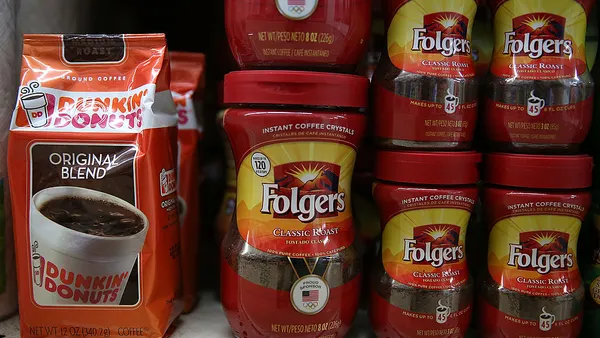A wave of coronavirus cases in India has impacted manufacturing and production across multiple industries and regions, according to comments from executives and analysts.
Williams-Sonoma CEO Laura Alber called the situation "heartbreaking," while noting the company's production in the region has been impacted.
Gap is facing a raw material shortage as a result of the outbreak in India, CEO Sonia Syngal said Thursday.
Case numbers in India have started to come down from their early May peak, according to figures from The New York Times. Data from Johns Hopkins University shows nearly 28 million reported COVID-19 cases in India since the pandemic began, although many experts believe the true figure is much higher. The U.S. has 33 million reported cases.
India is the ninth-largest trading partner with the U.S., accounting for 2.4% of year-to-date trade as of March 2021, according to the Census. Some of the most common imports from the country are organic chemicals, industrial machines, cotton apparel and pharmaceutical preparations, according to government figures.
As case surges have shifted around the world, so has the impact to manufacturing and supply chains. In February 2020, Apple warned of supply constraints stemming from the outbreak in China. A month later, automakers in the U.S. and Europe announced temporary shutdowns as the pandemic spread.
Many of the temporary production stoppages in the automotive manufacturing industry in India were lifted this month, according to tracking from Everstream Analytics. But there are some newly reported pauses as Royal Enfield, which produces motorbikes, temporarily shuttered three manufacturing plants in India to keep workers safe amid outbreaks, according to Reuters.
One issue in India is a shortage of oxygen. It's used to treat coronavirus patients, and it is also part of the automotive manufacturing process. Some OEMs halted production to reserve oxygen for patients.
"In case the situation does not improve in the coming days, other industries relying on oxygen for production may also follow suit and curb production activities due to the imbalance of supply and demand," Everstream's Manager of Supply Chain Risk Intelligence Jena Santoro wrote in a note this month. "As businesses continue to be impacted by the pandemic, prolonged production halts to limit contact between staff and subsequent transmission are likely."
The situation has also impacted pharmaceutical production. About 80% of active pharmaceutical ingredients are produced overseas, mostly in India and China. Some manufacturers of COVID-19 vaccines have started looking to China to bolster their supply as the price of ingredients has risen significantly in India.
"According to reports, multiple Chinese active pharmaceutical ingredient (API) makers saw orders from third markets increase by 10 percent in the past two weeks, the same time when India’s COVID-19 situation started deteriorating," Santoro said.
This could reverse some of the shift away from China that happened as a result of the U.S.-China trade war, or at least putting it on pause, Zhang Zhiwei, chief economist at Pinpoint Asset Management, told CNBC.
"This could put the relocation of supply chains on hold for quite some time," Zhiwei said. "The key issue here is that international travel is suspended, so multinational companies can’t send their staff to India and Vietnam to set up new factories."















